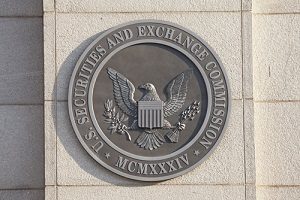With over $136 million in Whistleblower Awards in 2020, the SEC Amends the Rules of its Whistleblower Program

In a public meeting held earlier this week, the SEC approved – by a 3-2 vote – several changes to its remarkably successful whistleblower program. Most notably, the Commission withdrew a 2018 contentious proposal which would have authorized it to reduce the amount of money in rewards issued in large enforcement actions where at least $100 million were collected. Moreover, all five Commissioners recognized the importance of whistleblowers in rooting out fraud – otherwise difficult to detect, as well as protecting investors and market integrity.
The SEC whistleblower program provides for mandatory rewards for individuals – regardless of their citizenship or residency – who provide information about possible violations of securities laws if their information helps the SEC bring a successful enforcement action where over $1 million in monetary sanctions are collected. Whistleblowers may receive between 10% and 30% of the collected sanctions. The program also offers confidentiality and anti-retaliation protections.
Statutory maximum percentage for awards of $5 million or less
New changes will allow the SEC to pay the statutory maximum of 30% in the absence of any negative factors (i.e. culpability, unreasonable delay in reporting and/or interference with internal compliance and reporting procedures). This is a significant victory for whistleblowers as it will expedite the award payment process allowing them to receive their money faster. At present, Commission staff spends considerable time and resources in assessing appropriate percentage.
Awards greater than $5 million remain subject to the existing multi-factor test whereby the SEC determines award amount using both positive factors (e.g. significance of the information and assistance provided) as well as negative factors. However, the SEC now makes clear that it will have the discretion to adjust awards in percentage terms (10% to 30%), dollar amount, or a combination thereof. Importantly, the SEC abandoned its earlier proposal to introduce so-called soft caps whereby the Commission would have had the power to reduce “exceedingly large awards” for enforcement actions where at least $100 million were collected. Undoubtedly, the Commission heeded many of the concerns expressed by whistleblowers, their advocates and lawmakers, including Senators Chuck Grassley and Elizabeth Warren.
At the open meeting earlier this week, all five Commissioners recognized that the success of the program is directly attributable to the significant contributions provided by whistleblowers at the expense of great personal and professional risks. Thanks to whistleblowers, the SEC has been able to collect close to $2.5 billion in monetary sanctions out of which over $700 million has been returned or is scheduled to be returned to investors. Whistleblower pay-outs amount to approximately $523 million. This year alone, the SEC has paid $136 million to 30 whistleblowers, including a $50 million award, the largest payment made by the Commission to a single whistleblower to date, representing a 100% increase to the amount paid in FY 2019.
The data speaks for itself showing the unqualified success of the program since its inception 10 years ago. The SEC would effectively be shooting itself in the hip should it opt to exercise its discretion to adjust award amounts in a manner that negatively impacts these staggering figures. Dissents by Commissioners Allison Herren Lee and Caroline Crenshaw should serve as a warning to the Commission on when and how to exercise its discretion.
Other welcome changes
The term “action” will now formally include deferred prosecution agreements (DPAs) and non-prosecution agreements (NPAs) entered into by the Department of Justice as well as settlement agreements by the Commission outside the context of judicial or administrative proceedings. This change will apply to any such agreement entered after July 21, 2010 (date whistleblower program was created by Congress) giving whistleblowers 90 days to apply for an award in connection with said agreements.
The Commission also withdrew an initial proposal which would have penalized whistleblowers who first communicate with Commission staff by other means other than the filing of a mandatory form. SEC will now give whistleblowers a 30-day curing period to comply with any filing requirement. Certainly, a more balanced approach.
Room for improvement remains
An area of concern is the new interpretation of what qualifies as a “related action.” The SEC may reject paying more money to a whistleblower who has provided information which results in successful enforcement actions by the SEC and another agency, or authority, if it determines there is a separate award scheme which is more appropriate to the action in question. Congress clearly intended to incentivize and reward whistleblowers by including the possibility to collect additional money in related actions. As such, focus should be on whether the information provided by the whistleblower helped agencies or authorities impose fines, not on limiting payments to whistleblowers who may now think twice before assisting in complex multi-agency investigations.
What these changes mean to whistleblowers
Only time will tell if and how these changes will impact the SEC’s celebrated whistleblower program. For now, the increasing number of awards – and the increasing size of these awards – seem to suggest the SEC will not sabotage its very own success.
The Whistleblower Team at Constantine Cannon is highly experienced in helping potential whistleblowers evaluate their claims. Thanks to the firm’s successful history partnering with enforcement agencies, our attorneys know how to provide effective assistance and counsel for whistleblowers both in the US and abroad. If you would like to know more or schedule a confidential consultation, please contact us to see how we can help.
Read More:
- The SEC Whistleblower Program
- SEC Enforcement Actions
- Financial & Investment Fraud
- Securities Fraud
- SEC Whistleblower Program 2019 Annual Report Tells Story of Significant Impact – Despite Beginning the Year with a Government Shutdown
- Top Ten SEC and CFTC Recoveries of 2019
- I Think I Have a Whistleblower Case
- Whistleblower FAQs
Tagged in: Anonymity, SEC Whistleblower Reward Program, Securities Fraud, Whistleblower Rewards,